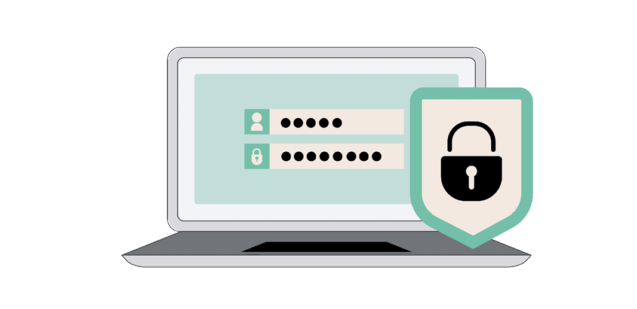Categories

There are plenty of excellent reasons to become a credit union member. Lower rates on loans. Higher rates on savings. Personalized financial service. A sense of community and ownership. The list of benefits goes on and on. But what about building a better credit rating? Is it possible that joining a credit union can help you improve your credit score? Not only is it possible, we’ll show you several ways that a credit union can help you boost your credit as you build your financial future.
1. Lower loan rates make it easier to keep up with payments.
Your payment history accounts for 35% of your credit score. If you can’t afford to keep up with monthly loan payments, your credit rating will suffer. Unfortunately, when they find themselves in a financial pinch, many people with less-than-stellar credit resort to high-interest personal loans. While these loans may be easier to qualify for, their payments can be steep, making it difficult for the borrower to stay current with payments. If this frustrating scenario sounds all too familiar, your local credit union may be able to put you back on the positive financial track.
Since credit unions are member-owned, it’s in their best interest to do whatever they can to help their members succeed. One of the primary ways they accomplish this is to reinvest earnings into loan programs with lower interest rates than most traditional lenders. Lower rates mean more affordable payments, which gives you a better chance to keep up with your payment schedule and re-establish a positive payment history.
2. Specialized loans allow you to establish or rebuild credit.
If you’ve never borrowed money from a lender before, you may find it difficult to qualify for a loan. On the other end of the borrowing spectrum, if you’ve defaulted on loan agreements in the past, you may find it equally challenging to get financing when you need it. While the individual options may differ from one to the next, most credit unions offer custom loan programs designed to help borrowers establish credit for the first time or rebuild damaged credit.
Some credit unions use aptly-named “credit builder loans” that function much like secured credit cards. You make an initial deposit — often between $500 – $1,000 — which the credit union holds in a secure account for an agreed-upon term. During that time, you make regular payments, which the credit union reports to the three main credit bureaus. While you don’t have access to your funds until the repayment terms are satisfied, you get the chance to create a positive payment history and create a personal savings account in the process. Other credit unions offer similar loans that are secured by the funds in your share account or share certificates. These helpful loans offer competitive rates, report to the credit bureaus, and allow you to continue earning dividends on the money in your share accounts.
3. Fewer fees mean more of your money can go toward paying off debt.
In the first point, we mentioned that credit unions are member-owned financial cooperatives. This unique business model allows them to invest earnings back into products and programs that benefit members in the form of fewer fees and lower interest rates. Since we’ve already discussed the lower rates, let’s focus on the reduced fees.
Individually, banking fees may not seem all that terrible: a $3.00 ATM fee here, a $2.00 paper statement fee there. But when you consider that many banks also charge monthly maintenance fees, inactivity fees, excess transaction fees, and card replacement fees, it’s easy to see how those fees can add up. Since credit unions traditionally charge fewer fees for their accounts and loans, their members keep more of their hard-earned money. And thanks to the popularity of credit union networks offering fee-free ATM use, members can save even more! If you’re a credit union member trying to improve your credit rating, you can use those savings to pay down your debt, which may help you increase your credit score.
4. Automatic payment options reduce the chance of missed payments.
When you’re trying to build or rebuild good credit, it’s essential that you make your monthly payments on time. Credit card bills, loan installments, rent, mortgage, you name it — if it’s a monthly payment, you owe it to yourself and your credit rating to pay it on or before the due date. Late and missed payments not only hurt you financially through additional charges and fees, but they can also damage your credit rating when they are reported to the credit bureaus.
Since a credit union’s success relies on creating the best member experience possible, most offer automatic payment programs along with online bill pay services that make it simple to keep up with your payments. By following a sensible budget and scheduling your payments ahead of time, you can eliminate the risk of forgotten payments and enjoy the peace of mind that comes from knowing all your accounts are up to date.
5. Dedicated resources help members build and maintain good credit.
When a credit union member builds a solid credit rating and a stable financial future, everyone wins. In a financial cooperative, strong financial habits lead to improved credit union performance, which ultimately benefits members and staff alike. Because of this mutually beneficial relationship, many credit unions offer dedicated resources to ensure all of their members have the tools they need to win with their finances.
Every credit union is different. Some offer credit counseling services. Others focus on credit-building products like the loans and credit cards mentioned above. Some even sponsor educational programs that instruct members on the finer points of establishing and maintaining good credit. But regardless of the specific resources they offer, credit unions are committed to equipping their members with the knowledge and tools to build a strong credit rating. As a member, it’s up to you to use the resources they provide.
Whether you are trying to establish credit for the first time or rebuild your credit after a financial hardship, Spero is here to help. Learn about our products and programs online, or stop by one of our branch locations to discuss your current situation with one of our financial specialists.



